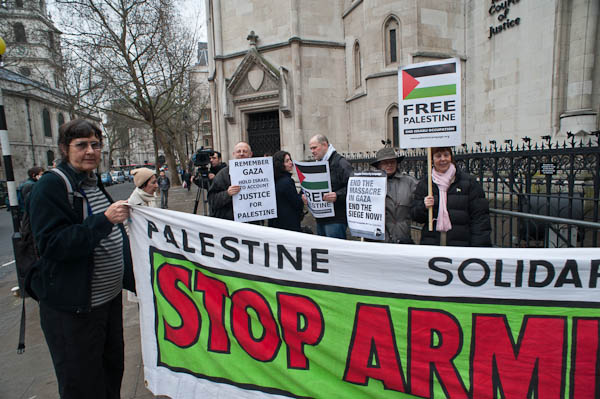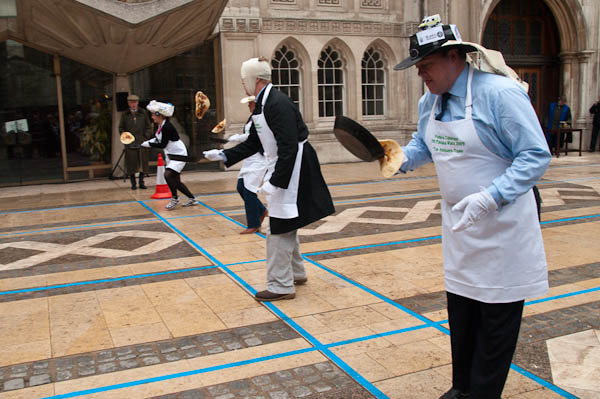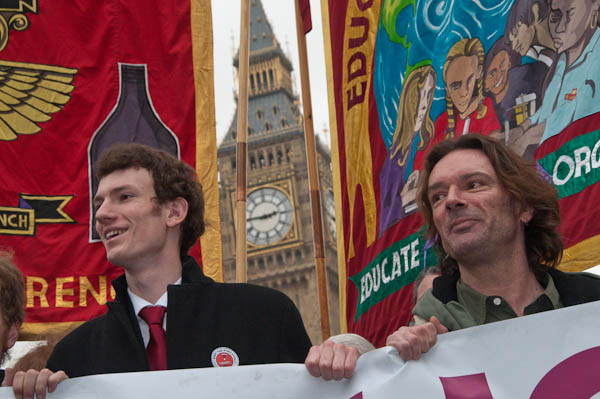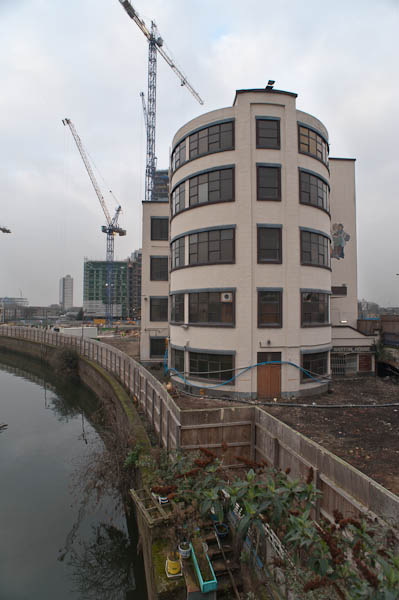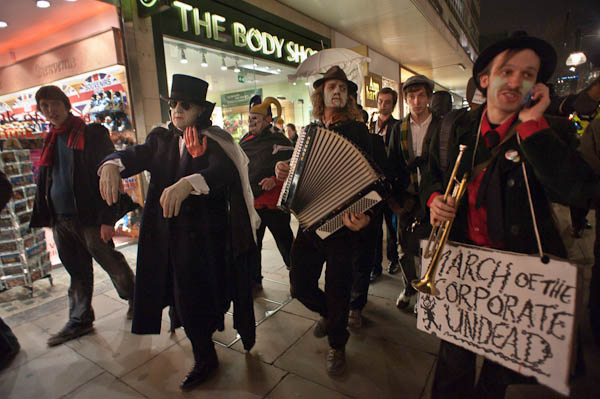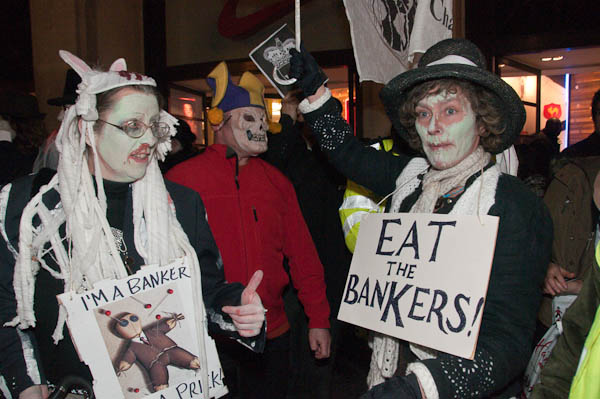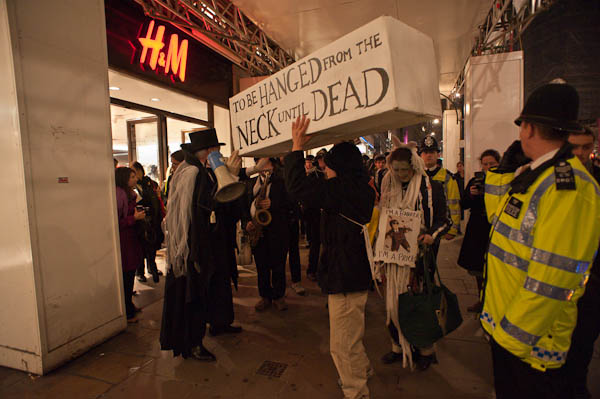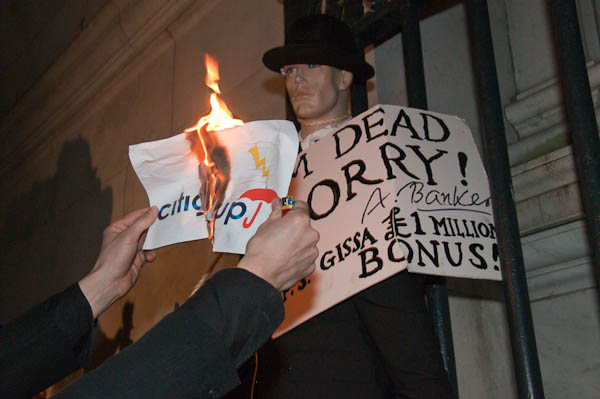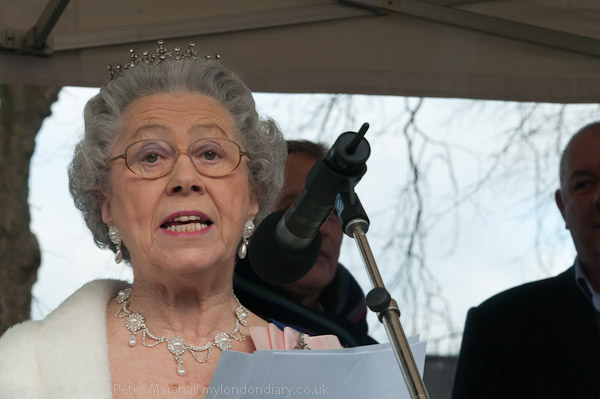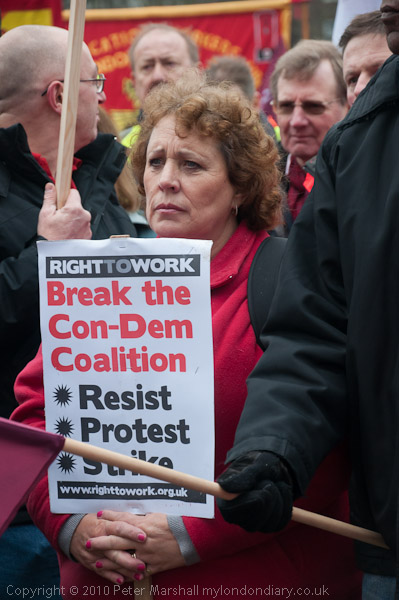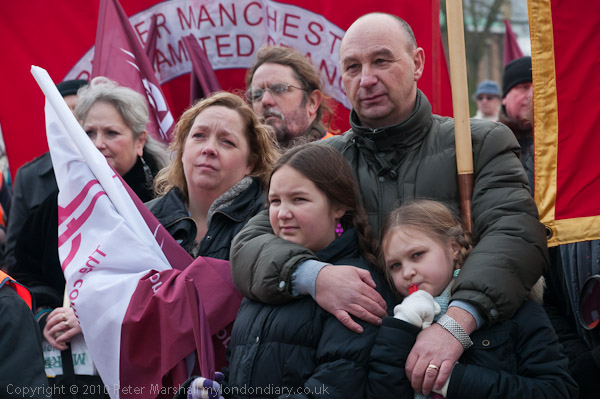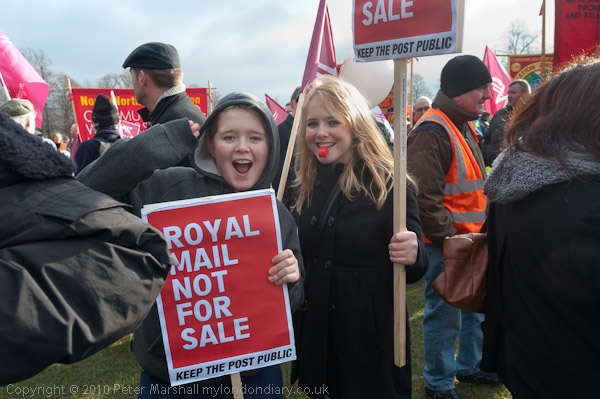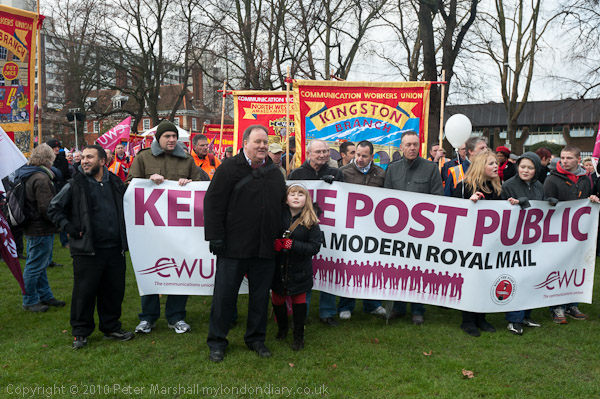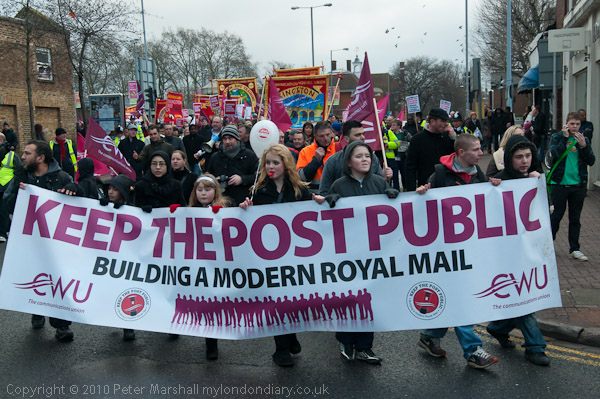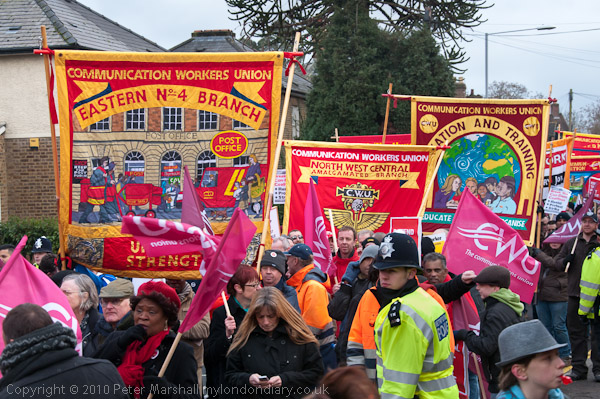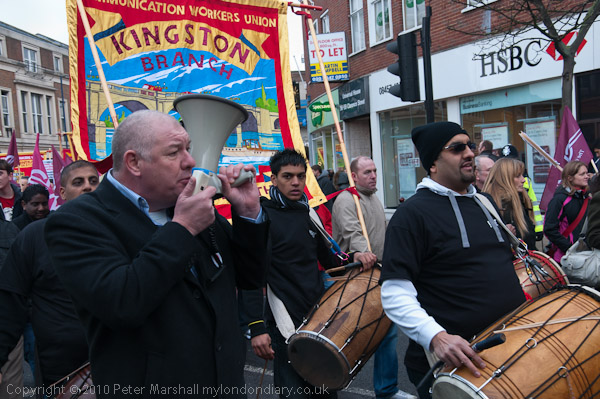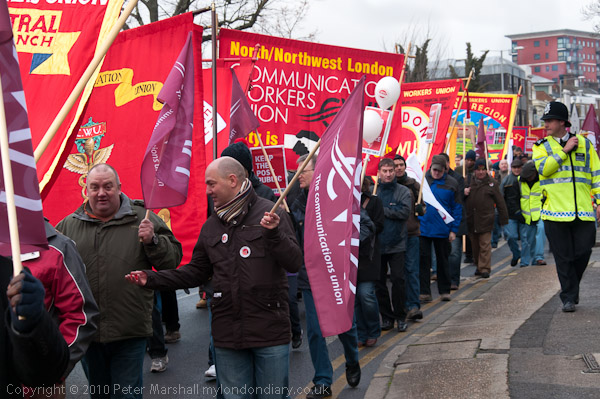Youth March For Jobs: Searching this morning for what to post I came across a piece I had written at the time about the Youth March for Jobs in London on Saturday 28th November 2009 and had forgotten about – and thought it worth sharing with you again.
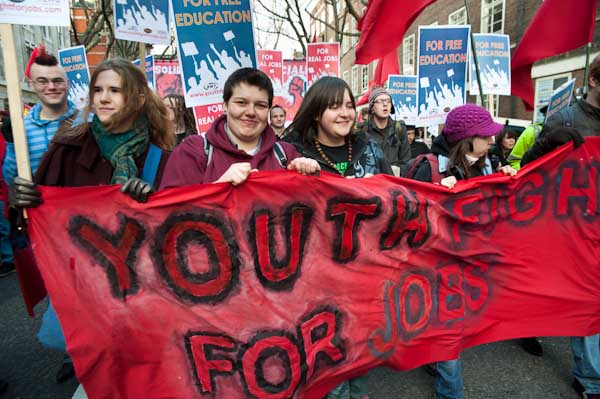
This march was a national demonstration called by’Youth Fight For Jobs‘, an organisation founded earlier in that year “backed by 7 national British trade unions, the PCS, RMT, the CWU, Unite, UCU, TSSA and BECTU, as well as individual trade union branches, student unions and labour movement figures” to raise awareness and campaign for action over youth unemployment. I reproduce the text here (with just a few spelling corrections) along with a few of the many pictures I took at the event – you can find more on My London Diary.
Youth March For Jobs
Central London. Saturday November 28, 2009
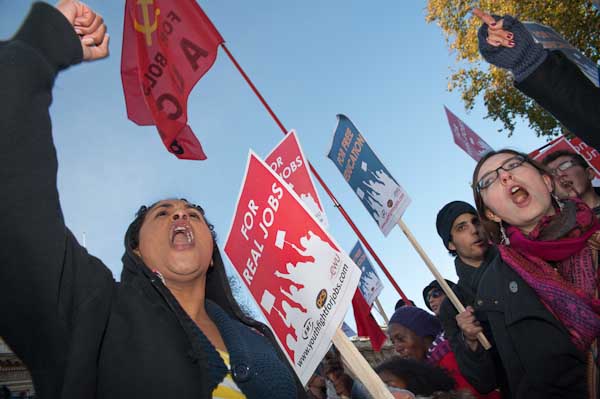
I walked away from the Youth March for Jobs with a Polish man of around my age who had been watching the march as it came over Lambeth Bridge. “These people“, he told me, “do not understand what they are asking for.” I disagreed and we walked along the road talking. “I grew up under socialism, and there was no freedom. I couldn’t travel, couldn’t say what I thought…” he continued. We talked some more. He told me: “You weren’t allowed not to work; if a policeman saw you on the street not working he would order you top go to the job centre the following morning, and they would send you to a job.” We agreed that although we were against such compulsion, at least there was work for everyone, unlike here.
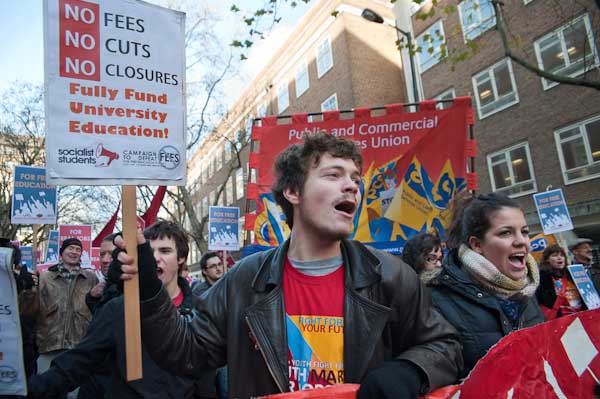
We talked more. About how terrible it was that there were so many young people that wanted to work, that were leaving school and university with qualifications but could not find a job. That the system here was all determined by money with no thought of the social consequences. That under socialism, culture had flourished, with arts centres and music supported by the state at a local level in a way that has never happened here, where Arts Council funding is directed at elites.
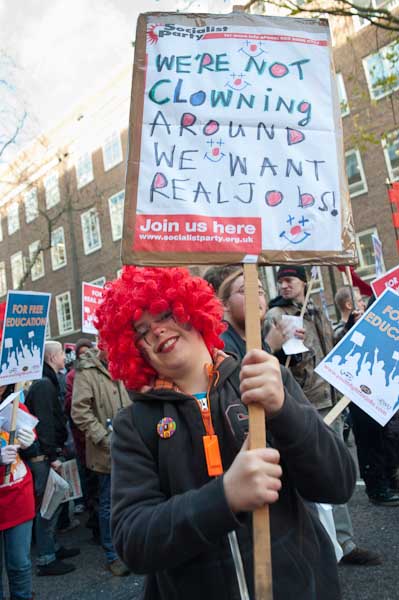
We went our different ways before I had a chance to tell him that the free education that these young people were demanding was something that my generation, born after the war, had taken for granted – along with the rest of the then new welfare state that our governments over the last 30 or more years have been cutting back on. Coming from a background that was economically scraping the barrel in a way perhaps hard to imagine today (but rich in some other respects) I would never have been able to attend university unless the state had paid for my fees and living expenses.
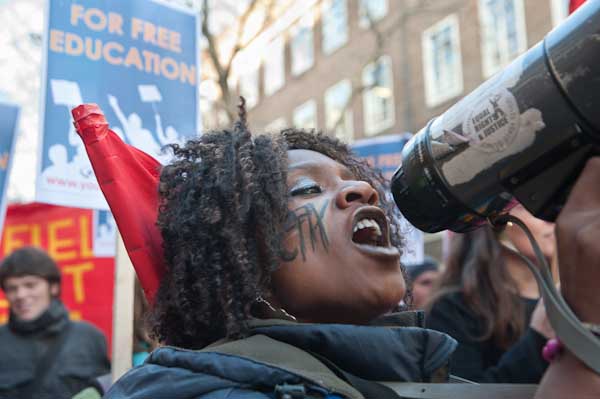
What we needed, we agreed before parting, was a system that combined both the freedom of thought and action we enjoy with full employment and a state that shows a real responsibility to support everyone, particular its poorest members. Actually something that many of the slogans chanted on the march were calling for.
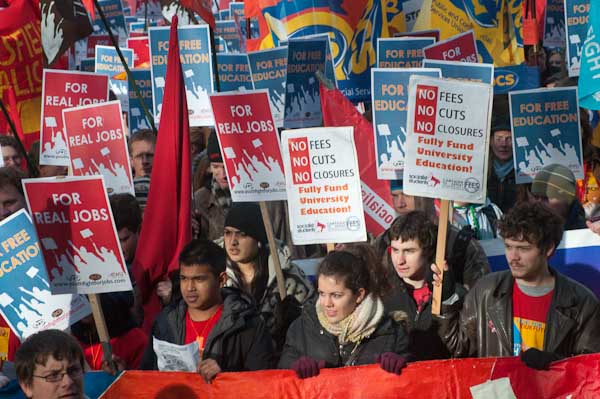
A little under a thousand came to the start of the march outside the University of London Union in Malet St. Some were from around London, but there were also banners from Hull, Huddersfield, Birmingham and elsewhere. Many were students and most but not all were young. Many of the slogans chanted as they made their way through the crowded streets of Central London represented a disillusion with both the Government and politics generally:
Labour Cronies
Tory Snobs
Fight their cuts
Fight for jobsbut others were aimed specifically at Labour
Mandelson's a Tory
He wears a Tory Hat
And when he saw our top up fees
He said I'll double that!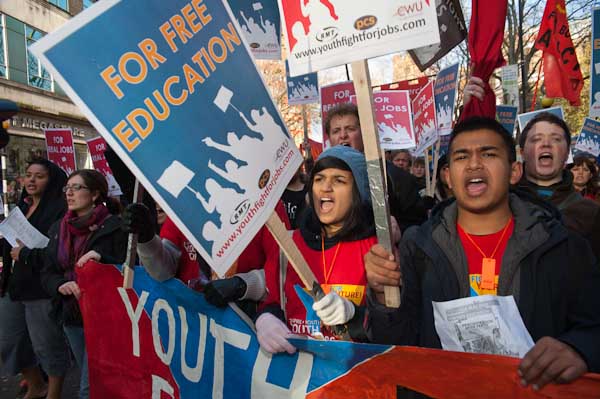
Some contrasted the billions made available to rescue the failed bankers with the stringencies being imposed on students and the poor:
Gordon Brown, stop the rot
Give us what the bankers got,
Bail out the workers
Not the bankers!
The billions wasted on ill-conceived and probably illegal wars – currently the subject of yet another enquiry expected to state the clearly obvious – also came in for noisy and enthusIastic criticism.

What the marchers want is the right to education rather than it becoming a privilege for the wealthy, and for decent jobs. They oppose privatisation, which has so often led to lower standards, replacing a pride in work and a social responsibility by cost-cutting, minimum standards (often not achieved) and a loss of security for the workers with part-time working, short term employment and loss of rights and pensions.

The march halted for a few minutes outside Downing St, where, after a speech that only a few could hear as restrictive laws prohibit the use of megaphones in the area, a small delegation went to take a large petition to the Prime Minister, before continuing past the Houses of Parliament. I left the marchers as they crossed over the Thames on Lambeth Bridge on their way to their final rally.
More pictures at Youth March For Jobs.
Flickr – Facebook – My London Diary – Hull Photos – Lea Valley – Paris
London’s Industrial Heritage – London Photos
All photographs on this page are copyright © Peter Marshall.
Contact me to buy prints or licence to reproduce.

